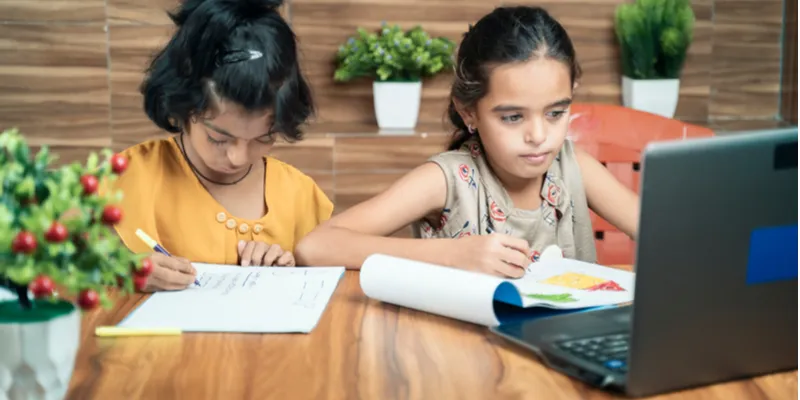Five ways parents can help children cope with "corona phobia"
The panndemic and successive lockdowns have created unprecedented anxieties among children. Here's how parents can help them cope with the stress.
With many states across the country going into lockdown, and with social distancing and isolation increasingly becoming the norm, “coronaphobia” and other mental health issues have come into the spotlight. Several people who are experiencing complete isolation for the first time have reported various incidents of panic attacks, anxiety, obsessive behaviour, depression, and even post-traumatic stress disorder (PTSD).
Children too have been impacted owing to the isolation from their peers, limited social interaction, and disrupted schedules. Children may express distress by acting erratically, expressing anger, and hyperactivity.
Here are five ways UNICEF and WHO say parents and family can help children cope with the pandemic.
Appreciate, encourage, and empathise
Ask your children how they are feeling and understand their fears. Many of them may be hearing stories from outside or seeing things on the news and on social media which are very disturbing. Speak to them about their fears, address misinformation and apprehensions, be honest with them and don’t gloss over or dismiss their concerns. Being available for them to express what is bothering them is a huge step. Many are also spending more time than ever online and could be victims of cyberbullying. The only way you can find out is by keeping open communication with them.

Isolation from friends and peers, disrupted routines, and increased exposure to news and social media is creating a lot of anxiety and depression among children.
Reassure and regulate
It is important for parents to reassure their children that they will protect them from harm. However, it is important to ensure that they follow all guidelines, including social distancing from friends, the importance of wearing masks, and washing hands. Setting routines is also important as it creates a structure and a sense of security in uncertain times. This means having set bedtimes and mealtimes, and routine virtual interaction with friends. Children who are acting out may be feeling stress so help them with deep breathing exercises or mindful activities that can calm them.
Create distractions
One way to reassure your child is by creating activities to engage with them. This could be via a game night or an impromptu family movie night or even cooking a meal together. While many children prefer to spend free time with their screens, experts suggest regulating that and spending quality time with them so that they don’t become totally dependent on online distractions as an outlet.
Increase self-agency
Children feel more secure when they are trusted with certain responsibilities. Encourage your child to be more responsible for themselves and around the house by assigning small chores that gives them a sense of responsibility. This could be setting a healthy menu for a day, tending plants, keeping their room neat. This gives them a greater sense of control when they are responsible for themselves and feel like they are being trusted to be responsible for others as well.
Recognise the hidden cries for help
Some of the most common signs of anxiety are sleeplessness, acting out, crying for no apparent reason, loss of appetite, withdrawn behaviour, new anxieties like a sudden fear of the dark or fear of being left alone. Don’t be afraid to seek professional help and counselling for those who might need it. These are strange and new times for us all and often, the right guidance, can make all the difference to parent and child.
Edited by Diya Koshy George







